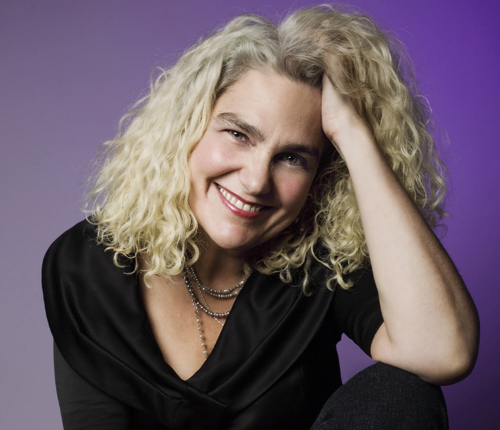
Our response to the increasing number of children becoming obese may actually be making things worse, says Prof. Carla Rice, Family Relationships and Applied Nutrition. She says intentions may be good, but the results can be disastrous.
“Part of the response has been to try to shame kids into eating less and exercising more, and to weigh them and monitor their weights. What we find is that when eating is disciplined and controlled in these ways, children pick up secretive eating, binge eating and, eventually, serious eating problems. And when their bodies are scrutinized, it makes them self-conscious and actually discourages them from being active.”
Stopping weight-based harassment at schools would be a more positive step, Rice suggests, and it would also help if parents avoided critiquing their children’s bodies at home. “We need not just individual changes, but institutional and cultural changes as well,” she says.
Rice is the new Canada Research Chair in Care, Gender and Relationships at U of G, and this position provides her with the opportunity to continue her research on body image and beauty. A graduate of Harvard, Rice earned her master’s at the University of Toronto in applied psychology and her PhD in women’s studies at York University. Along with many years of clinical work, Rice has worked for the National Eating Disorder Information Centre and the Body Image Project at Women’s College Hospital in Toronto, and has taught Gender and Women’s Studies at Trent University in Peterborough.
As a consultant for the Dove Campaign for Real Beauty, Rice reviewed ads before they were produced and advised on materials prepared by Dove for use in schools. This advertising campaign moved away from the traditional models to sell their body care products and included older women, women from ethnic and racial minority groups, and women of various sizes.
“I wanted to help change the representations of beauty in our society,” Rice says. “The campaign has been extraordinarily successful, and I’ve been contacted by so many women who welcomed this broader definition of beauty.”
Many women, though, were still left out. “We didn’t see any bodies with cellulite, for example,” says Rice. “And those with facial and physical differences weren’t represented. So the broader definition only went so far.” Rice, who describes herself as “a passionate feminist,” continues as a member of the International Advisory Committee for Dove’s Self-Esteem Fund.
Body image is usually considered to be mostly about weight, but Rice says that’s because most research is focused on white, non-disabled women. “In my clinical work, I talked to women of all races, with different abilities and appearances, and they had many body image concerns beyond weight.” Her PhD research was based on “body history interviews” in which she asked women about their bodies and their feelings about their bodies from their earliest memories to the present time. It was during those interviews that she learned how those women who had been overweight as children had reacted to the comments of others.
“Many women were engaged in various body alteration projects,” she adds. “Some were secret, some were open. I include everything from shaving legs and dieting to skin lightening and cosmetic surgery in this category, to show that altering appearance is something almost every woman does.”
Women’s motivations for these efforts, Rice says, are about “trying to make ourselves physically acceptable and to reverse invisibility or rejection. We do these things to our bodies so we can feel we belong.”
It’s been suggested that women who modify their bodies are trying to live up to a possibly unrealistic ideal, but Rice finds that the desire to fit in and escape the feeling of being unacceptable is more commonly the real motivator. “In our body-conscious society, any small difference is highlighted,” she concludes.
Her current studies involve women with facial and physical differences and disabilities. To encourage understanding, Rice is working with some of the women and their health-care providers to create short autobiographical films and theatre performances about their experiences.
She says: “We want to understand the value of the arts as a way of reaching people – helping health and other care providers to reflect on their relationships with people who embody differences and to deepen their appreciation for their shared humanity. For example, providers might think about times when they were teased, harassed, or excluded, and to consider what they might do differently if the disabled person was their mother, their partner or themselves.”
Completing this project will take another three years, Rice estimates. She’s also starting another project of personal importance: her marriage. “We married on Dec. 31, 2010, at twilight in a large tent in our backyard with about 60 people attending. My partner is aboriginal, so in her honour my parents read the Apache wedding blessing, and we invited people to tell a story or share what love meant to them. Then we celebrated from dusk to dawn. It was all really beautiful.”